2024 LOCAL
ADAPTATION
CHAMPIONS AWARDS
WATCH THE 2024 LOCAL ADAPTATION CHAMPIONS AWARD CEREMONY
MEET THE WINNERS
Meet the 2024 Nominees
Community Design Agency
INDIA

Save Your Hood (The Extra Mile)
GREECE AND CYPRUS

Instituto Internacional de Medio Ambiente y Desarrollo (IIED) America Latina
ARGENTINA

UPCYCLE AFRICA
UGANDA

Association la Voûte Nubienne
BURKINA FASO

Landprocess and Porous City Network
THAILAND

ALIET GREEN
INDONESIA

TECH-INNOV
NIGER

Slycan Trust
SRI LANKA

Horizon Business Ventures
KENYA

PraveenLata Sansthan Foundation
INDIA

ActionAid
VANUATU

Nabahya Food Institute
DEMOCRATIC REPUBLIC OF CONGO

Tree Aid
BURKINA FASO

New Agriculture New Generation
GREECE

Natural Aceh
INDONESIA

Youth Ecological Center (YEC)
TAJIKISTAN

Green Hope Foundation
KIRIBATI

Department of Education - Tabaco City Division (San Miguel National High School)
PHILIPPINES

Meghalaya Basin Development Authority
INDIA

Flora Phoenix Ltd
ZIMBABWE

The GCA Local Adaptation Champions Awards spotlight and reward innovative, exemplary, inspiring, and scalable locally led efforts that address the impacts of climate change and build effective climate resilience among the most vulnerable communities, sections of society, and individuals who are at the frontlines of the greatest existential threat faced by humankind.
2024 AWARD CATEGORIES
WATER SECURITY
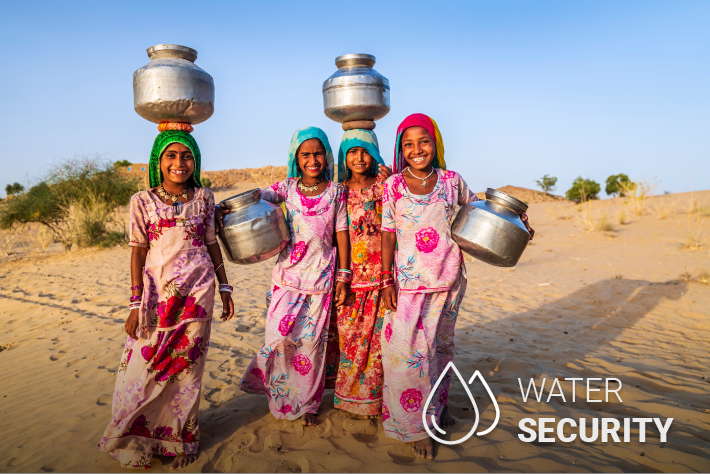
This category recognizes local, community-based initiatives that address water-related challenges and enhance local adaptation capacity through efficient water drainage, channeling, use, or conservation. The solutions must be locally designed, accessible and tailored to the needs of the most vulnerable groups in the community, ensuring equitable management of water resources for all.
We invite applications from women-led groups, non-governmental organizations (local, national, and international), universities, research institutes, think tanks, governments, and entrepreneurship support organizations.
FOOD SECURITY

This category recognizes local, community-led initiatives that support the design, mainstreaming, and adoption of climate-smart food production systems that are designed by and for smallholder producers and vulnerable communities along the supply chain. Initiatives in this category should demonstrate how they contribute to ensuring continuous, equitable and sustainable access to diverse, nutritious foods for poor, vulnerable and disadvantaged groups.
We invite applications from women-led groups, non-governmental organizations (local, national, and international), universities, research institutes, think tanks, governments, and entrepreneurship support organizations.
URBAN ADAPTATION SOLUTIONS
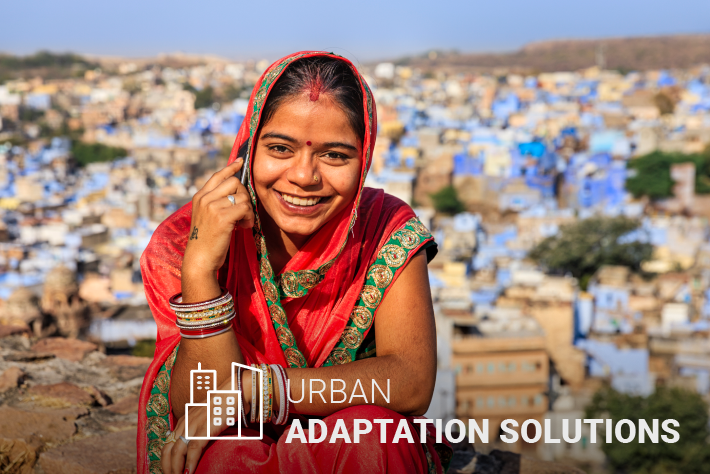
This category recognizes locally led initiatives for adaptation to climate change in urban areas. Successful initiatives engage and benefit vulnerable urban neighborhoods, community leaders and city governments through collaborative design, integration into city adaptation plans, and a long-term vision to continuously increase adaptive capacity over time.
We invite applications from women-led groups, non-governmental organizations (local, national, and international), universities, research institutes, think tanks, governments, and entrepreneurship support organizations.
LOCAL ENTREPRENEURSHIP
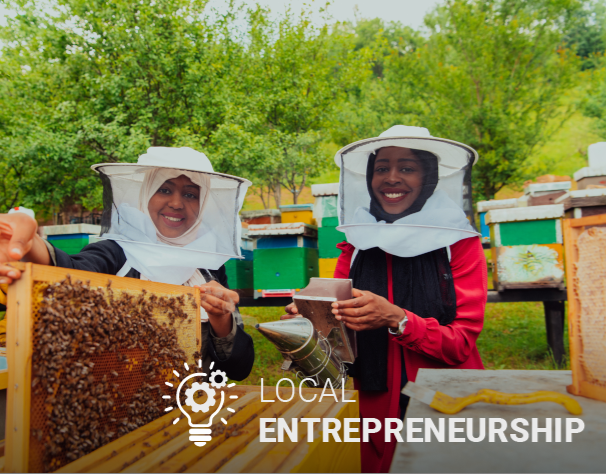
This category recognizes local, community-based businesses that:
Have developed or adopted adaptation solutions or technologies that address local climate-related vulnerabilities and that are accessible locally to the people or groups most vulnerable to climate change;
Have supported local communities and governments in adaptation efforts; or
Helped address structural inequalities faced by women, youth, children, disabled, displaced, indigenous peoples and marginalized ethnic groups that make them more vulnerable to the impacts of climate change.
We invite applications from micro, small and medium enterprises (MSMEs) with core business models focused on local climate adaptation initiatives, women-led businesses, tech and non-tech enterprises, locally grown corporates or organizations promoting local climate adaptation along supply chains.
2024 LOCAL ADAPTATION CHAMPIONS AWARDS
Only applications that meet all five of the following criteria will be considered for the 2024 competition:
The intervention is being implemented and results are demonstrable.
The intervention addresses adaptation to climate change impact or builds resilience against climate impacts.
The intervention aims at the most vulnerable communities, sections of society, and individuals experiencing climate impacts.
The intervention is locally led, adhering to one or more Principles of Locally Led Adaptation.
The call for applications was open from 1 July to 11 August 2024.
For more information about eligibility criteria, the selection process and more, please refer to the 2024 Applicants' Guidebook.
2024 JURY
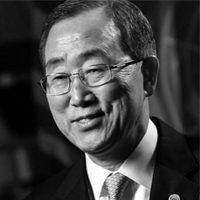
Ban Ki-moon was the 8th Secretary-General of the United Nations. His priorities have been to mobilize world leaders around a set of new global challenges, from climate change and economic upheaval to pandemics and increasing pressures involving food, energy, and water.
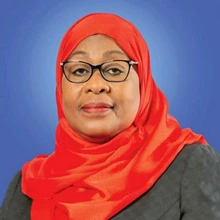
President Samia Suluhu Hassan became the sixth President of the United Republic of Tanzania in March 2021, following the death of President John Magufuli. She served as Vice President of Tanzania from 2015. Previous roles in Government include serving as Minister of State in the Vice-President's Office, responsible for Union Affairs (2010-2015) and Minister in the semi-autonomous government of her home region of Zanzibar (2000-2010).
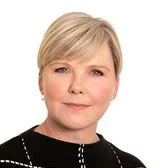
The Minister of International Development is responsible for international development efforts in countries outside the OSCE, the Middle East and Afghanistan. She is also responsible for Norwegian humanitarian efforts, development cooperation under the auspices of the UN system, the World Bank, the regional development banks and other global funds and programmes. In addition, she is Minister for Nordic Co-operation and responsible for Norad, Norec and Norfund.
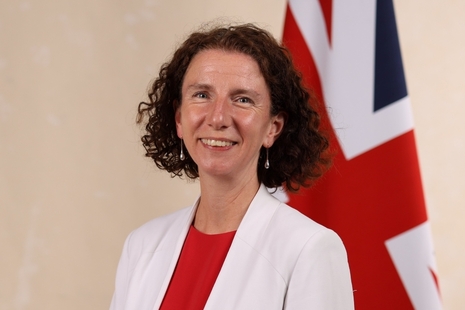
Anneliese Dodds was appointed Minister for Development at the Foreign, Commonwealth and Development Office and Minister for Women and Equalities at the Department for Education on 8 July 2024. She was elected as the MP for Oxford East in June 2017.

Prof. Patrick V. Verkooijen is CEO of the Global Center on Adaptation, and he also serves as the Distinguished Chair of the Wangari Maathai Institute for Peace and Environmental Studies at the University of Nairobi and as the Ban Ki-moon Chair on Climate Adaptation Governance at the University of Groningen. Prof. Verkooijen has also previously served as the World Bank Group Special Representative on Climate Change.
2024 TECHNICAL ADVISORY GROUP
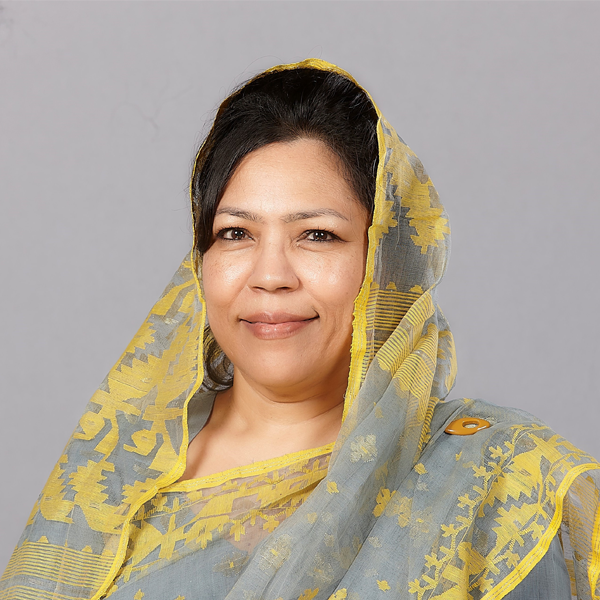
Dr. Farhina Ahmed has been Secretary of the Ministry of Environment, Forest and Climate Change since May 22, 2022. In an illustrious 30-year career in government service, she has worked in the civil service in the capacities of Additional Secretary, Joint Secretary, and Deputy Secretary in the Finance Division. She has been entrusted with many vital posts in the Ministry of Education, Ministry of Health, Ministry of Housing and Public Works, Ministry of Women and Child Affairs, and Field Administration. Dr. Ahmed is an officer in the Bangladesh Civil Service.

Saliha is the Programming and Innovation Unit Lead and Senior Climate Change Specialist at the Adaptation Fund, where she oversees the programming of over half a billion dollars in funding annually and leads the policy work related to the administration of climate finance for adaptation, including innovation and locally led action. Previously, she worked on adaptation, environmental, international waters, and integrated coastal zone management issues with the Global Environment Facility and The World Bank for over a decade.
She has also supported the World Bank’s MENA climate change beam in devising and implementing the first corporate climate change strategy for the region, and the Global Facility for Disaster Risk Reduction in support of mainstreaming climate change considerations in ex-ante disaster risk management. She is a co-author of a number of books, studies, and reports on climate change adaptation and other environmental issues, including “Time to Adapt: Insights from the Global Environment Facility’s Experience on Adaptation to Climate Change.” She is a recipient of several awards and distinctions and was recognized as one of “100 Women Leaders in Energy and Climate Change” by the White House in 2013.
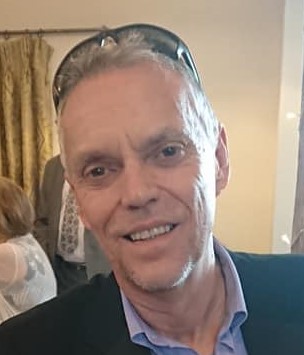
Vincent is Climate Resilience Advisor at the United Kingdom Foreign, Commonwealth and Development Office. In this role, he leads the UK Government's policy on locally led adaptation and serves as Lead Advisor on development of the LIFE AR initiative (Least Developed Countries Initiative for Effective Adaptation and Resilience).
He has 44 years professional experience, of which 15 years are in the field in Africa, the Middle East, South Asia, Papua New Guinea and Albania. He held significant senior advisory roles in DFID/FCDO and worked closed throughout his career with national governments, non-governmental organizations, the United Nations, the European Union and as an independent consultant.
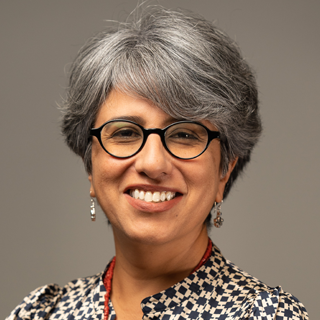
Anju is the Global Lead on Locally Led Adaptation at the Global Center on Adaptation. She has been Deputy Director of Oxford Climate Policy, and Head of the Policy and Publications Unit of the European Capacity Building Initiative. She is an Associate with the Stockholm Environment Institute and has been a Consultant with the International Institute for Sustainable Development and Visiting Fellow at the International Institute for Environment and Development. Anju has previously worked with the UN Environment Programme in Kenya, Oxfam GB in the UK, and the Centre for Science and Environment in India. She has also worked as a Consultant for a number of international organizations, including the Secretariat of the UN Framework Convention on Climate Change and the UN Development Program.
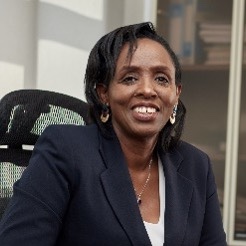
Dr. Agnes Kalibata has since 2014 led Alliance for Green Revolution in Africa in mobilizing public and private sector partners to raise the resources and build capacities needed to catalyze Africa’s inclusive, resilient and sustainable food systems transformation.
She was previously Rwanda’s Minister of Agriculture and Animal Resources from 2008 to 2014 where she led efforts to move Rwanda from a food insecure to a food self-sufficient country.
She served as the Special Envoy of the UN Secretary-General for the 2021 Food Systems Summit where she galvanized global efforts to transform food systems for people and planet.
She has a distinguished record of accomplishments as an agricultural scientist, policy maker and thought leader. She is a recipient of many prestigious awards.
She sits on various panels, boards, councils and commissions to provide thought leadership as an African voice and partnership builder.
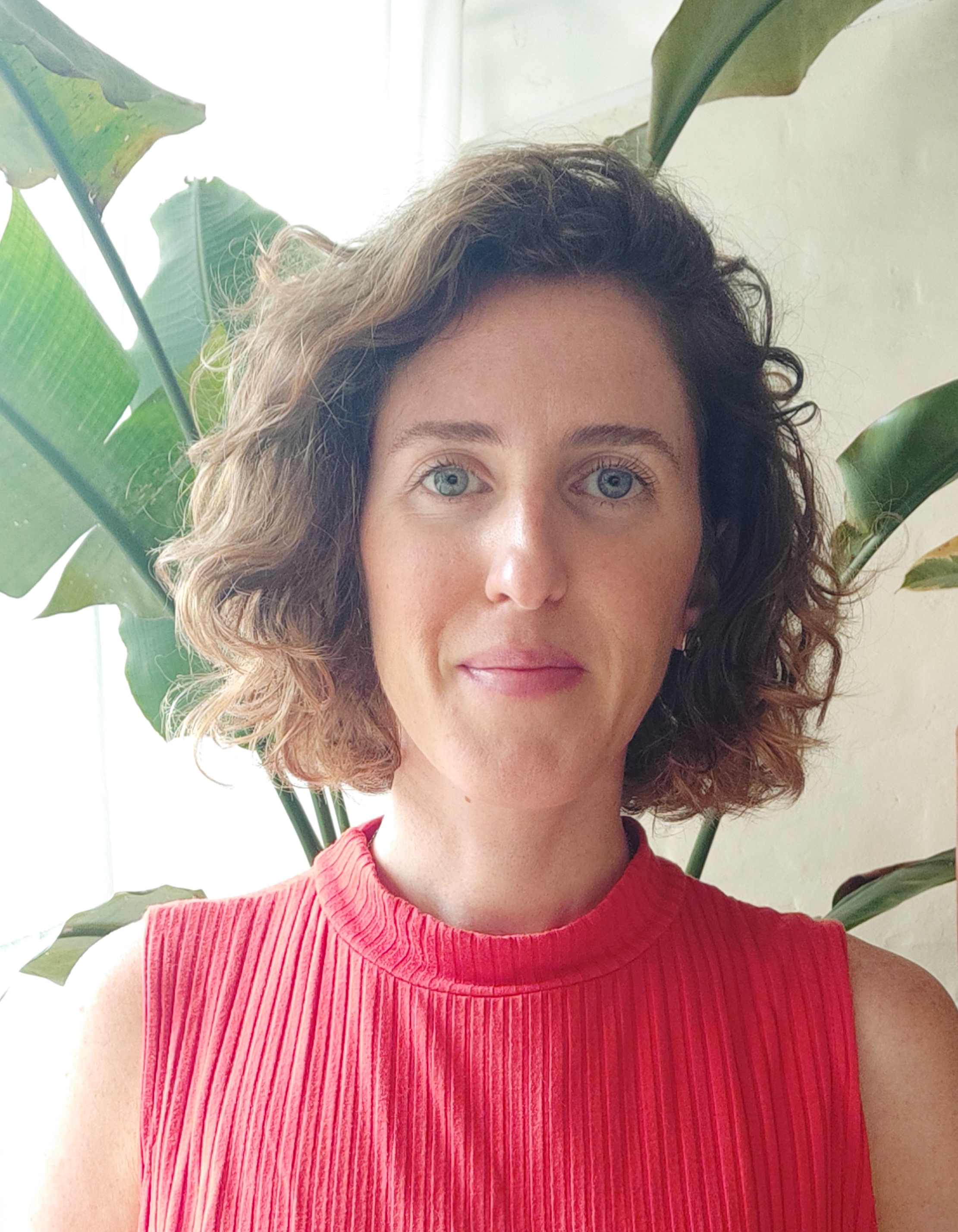
Victoria is part of the Climate Resilience and Transition Program at Fundación Avina, where she leads the BASE Initiative (Building Approaches to fund local Solutions with climate Evidence), which aims to enhance access to climate finance for local communities. Through this initiative, Victoria is dedicated to exploring innovative methods to develop project’s climate evidence, ensuring that processes are simple, quick and meaningful for the communities involved.
Victoria's career has been dedicated to environmental and sustainability efforts since 2004, with a particular focus on climate finance and governance over the last 6 years. Born in Argentina, she holds a master's degree in Natural Environment, Global Change, and Socio-ecological Sustainability from the International University of Andalucia, Spain.
.jpg)
Dr. Rajendra Singh, popularly known as the "Waterman of India," is a renowned river rejuvenator and environmentalist. Dr. Singh is the Founder and President of Tarun Bharat Sangh, which over the last 49 years has prepared and supported more than 1500 villages throughout India to construct 14,800 water structures.
Amongst his many accomplishments, Dr. Singh is a Ayurveda graduate and a post-graduate of Hindi literature, and holds several honorary doctorate degrees as well as has been awarded several national and international accolades, including the Government of India's Ministry of Environment and Forests Indira Gandhi Paryavaran Puraskar Award for 1994 and being named in the Guardian's list of "the world's 50 people in 2008 who can save planet Earth."

Smruti Jukur is an urban development practitioner, trained as an Architect and Urban Planner working with SPARC for over ten years; affiliated to Slum Dwellers International (SDI), she has experience working primarily in India, also in Asia and Sub-Saharan African cities with SPARC-Society for the Promotion of Area Resource Centre which is an affiliate for the transnational Slum Dwellers International (SDI) network, which spans over 30 countries in Africa, Asia and Latin America.
She works to support federations on projects in India and within the network of SDI on challenging urban planning practices, working on redefining norms and standards in areas of housing needs, including post-development induced displaced resettlement housing, water and sanitation, health and access to transport in the informal settlements. Her recent work includes supporting SPARC on the ‘What women want campaign’, which leads on Roof Over Our Heads (ROOH) launched at COP27 and is linked to the UN High Level Champions Race to Resilience and Race to Zero Campaigns: in realizing safe, affordable, accessible housing for the most vulnerable communities of the urban poor. The work operates from the premise that organized communities of the urban poor are central to generating inclusive, resilient and sustainable cities. She actively represents and advocates for the needs of the urban poor at various national and international forums. She engages with Planning and Architecture Universities nationally and internationally to co-create and understand designing and planning practice realities, especially within Informality.

Monica, hailing from Colombia, currently serves as the Global Program Manager for the UNDP-Adaptation Fund Climate Innovation Accelerator (AFCIA). Under her leadership, AFCIA has facilitated 44 micro and small grants across 33 countries, empowering locally-led organizations to implement innovative solutions aimed at bolstering resilience in vulnerable communities. Operating within the Adaptation Innovation Marketplace (AIM), the program prioritizes civil society, non-governmental organizations, and forward-thinking individuals, particularly women and youth, in its efforts to advance adaptation initiatives at the grassroots level. AIM acts as a collaborative platform, consolidating resources, expertise, and technical support to streamline access to climate change adaptation finance.
Prior to her role at UNDP, Monica served as the Project Manager for the Caribbean Biological Corridor Initiative at the United Nations Environment Programme (UNEP) Regional Office for Latin America and the Caribbean in Panama. During her tenure at UNEP, she oversaw various areas including Sustainable Procurement, Eco-labelling, Eco-innovation, and Sustainable Value Chains, with a keen focus on micro, small, and medium-sized enterprises. Monica has accumulated 15 years of experience in environmental projects, and earlier in her career, she contributed to the implementation of sustainable consumption and production projects with enterprises and local authorities in Colombia.
Monica holds a Master of Science degree in International Development and Management from Lund University, Sweden, and a Bachelor of Science degree in Environmental Sciences from Universidad Autónoma de Madrid, Spain.